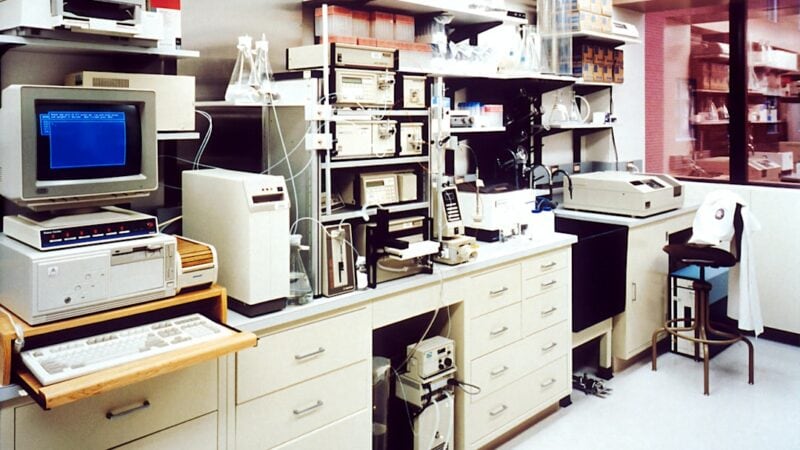The Best Gluten-Free Supplements for Bone Health with Celiac Disease

Celiac disease is an autoimmune disorder that affects the small intestine and is triggered by the consumption of gluten, a protein found in wheat, barley, and rye. It is estimated that 1 in 100 people worldwide have celiac disease, making it one of the most common autoimmune disorders. While celiac disease primarily affects the digestive system, it can also have a significant impact on bone health.
Understanding the effects of celiac disease on bone health is crucial for individuals with the condition and healthcare providers alike. Osteoporosis, a condition characterized by weak and brittle bones, is a common complication of celiac disease. Additionally, celiac disease patients are at an increased risk of fractures due to the decreased absorption of essential nutrients needed for bone health.
Table of Contents
Key Takeaways
- Celiac disease can have a negative impact on bone health due to nutrient deficiencies and malabsorption.
- A gluten-free diet is crucial for celiac disease patients to prevent further damage to the bones and other organs.
- Nutrient deficiencies, such as iron, calcium, and vitamin D, are common in celiac disease patients and can lead to bone loss.
- Supplements, such as calcium, vitamin D, magnesium, zinc, and omega-3 fatty acids, can help support bone health in celiac disease patients.
- When choosing supplements, it is important to look for gluten-free options and consult with a healthcare professional to determine the appropriate dosage.
Understanding Celiac Disease and its Impact on Bone Health
Celiac disease is an autoimmune disorder in which the body’s immune system mistakenly attacks the lining of the small intestine when gluten is consumed. This immune response causes inflammation and damage to the villi, small finger-like projections that line the small intestine and are responsible for nutrient absorption.
The link between celiac disease and bone health lies in the malabsorption of essential nutrients caused by the damage to the small intestine. When the villi are damaged, they are unable to effectively absorb nutrients such as calcium, vitamin D, magnesium, zinc, and omega-3 fatty acids, all of which are crucial for maintaining healthy bones.
The decreased absorption of these nutrients can lead to a higher risk of developing osteoporosis, a condition characterized by low bone density and an increased risk of fractures. Studies have shown that individuals with celiac disease have a higher prevalence of osteoporosis compared to the general population.
The Importance of a Gluten-Free Diet for Celiac Disease Patients
Gluten is a protein found in wheat, barley, and rye. When individuals with celiac disease consume gluten, it triggers an immune response that damages the lining of the small intestine. The only treatment for celiac disease is a strict gluten-free diet.
Adhering to a gluten-free diet is not only crucial for managing the symptoms of celiac disease but also for maintaining bone health. By eliminating gluten from the diet, individuals with celiac disease can reduce inflammation in the small intestine and improve nutrient absorption.
Foods to avoid on a gluten-free diet include wheat, barley, rye, and any products made from these grains. However, it is important to note that gluten can also be found in many processed foods, condiments, and even medications. Reading labels carefully and being aware of hidden sources of gluten is essential for maintaining a gluten-free diet.
On the other hand, there are many naturally gluten-free foods that can be included in a celiac disease patient’s diet to support bone health. These include fruits, vegetables, lean proteins, dairy or dairy alternatives (if tolerated), and gluten-free grains such as quinoa, rice, and corn.
Nutrient Deficiencies Common in Celiac Disease Patients
Celiac disease can lead to nutrient deficiencies due to the malabsorption of essential nutrients caused by damage to the small intestine. Some of the most common nutrient deficiencies in celiac disease patients include calcium, vitamin D, magnesium, zinc, and omega-3 fatty acids.
Calcium is a mineral that is essential for building and maintaining strong bones. Vitamin D is necessary for the absorption of calcium and plays a crucial role in bone health. Magnesium is involved in bone formation and helps regulate calcium levels in the body. Zinc is important for bone growth and repair. Omega-3 fatty acids have anti-inflammatory properties and may help reduce inflammation in the body.
The impact of these nutrient deficiencies on bone health cannot be overstated. Without adequate levels of these nutrients, individuals with celiac disease are at a higher risk of developing osteoporosis and fractures. Therefore, it is important for celiac disease patients to monitor their nutrient levels regularly and take steps to address any deficiencies.
The Role of Supplements in Supporting Bone Health with Celiac Disease
Supplements can play a crucial role in supporting bone health for individuals with celiac disease. However, it is important to note that supplements should not replace a healthy diet but rather complement it. It is always recommended to consult with a healthcare provider before starting any new supplements, as they can provide personalized recommendations based on individual needs.
Supplements can help fill the nutrient gaps caused by malabsorption in celiac disease patients. They can provide the necessary nutrients needed for bone health, such as calcium, vitamin D, magnesium, zinc, and omega-3 fatty acids. However, it is important to choose high-quality supplements from reputable brands to ensure their safety and efficacy.
Potential risks and benefits of supplements should also be considered. While supplements can be beneficial in addressing nutrient deficiencies, taking excessive amounts can lead to toxicity and adverse effects. Working with a healthcare provider can help determine the appropriate dosage and monitor for any potential interactions with medications.
Calcium Supplements for Celiac Disease Patients

Calcium is one of the most important nutrients for bone health. It is essential for building and maintaining strong bones and teeth. Celiac disease patients are at an increased risk of calcium deficiency due to malabsorption caused by damage to the small intestine.
The recommended daily intake of calcium for celiac disease patients is the same as for the general population: 1000-1200 mg per day for adults. However, individuals with celiac disease may need higher doses if they have a history of fractures or osteoporosis.
The best sources of calcium for celiac disease patients include dairy products (if tolerated), fortified non-dairy milk alternatives, leafy green vegetables (such as kale and broccoli), and calcium-fortified foods. However, it can be challenging to meet the recommended daily intake through diet alone, especially for individuals with celiac disease who may have limited food choices.
Calcium supplements can be a helpful addition to a celiac disease patient’s regimen to ensure adequate intake. It is important to choose a calcium supplement that is easily absorbed and well-tolerated. Calcium carbonate and calcium citrate are the most common forms of calcium supplements available.
Potential risks of calcium supplements include constipation, gas, and bloating. It is important to start with a low dose and gradually increase as tolerated. It is also recommended to take calcium supplements with meals to enhance absorption.
Vitamin D Supplements for Celiac Disease Patients
Vitamin D is essential for the absorption of calcium and plays a crucial role in bone health. It helps regulate calcium levels in the body and promotes bone mineralization. Celiac disease patients are at an increased risk of vitamin D deficiency due to malabsorption caused by damage to the small intestine.
The recommended daily intake of vitamin D for celiac disease patients is the same as for the general population: 600-800 IU per day for adults. However, individuals with celiac disease may need higher doses if they have a history of vitamin D deficiency or osteoporosis.
The best sources of vitamin D for celiac disease patients include sunlight, fatty fish (such as salmon and mackerel), fortified dairy or non-dairy milk alternatives, and egg yolks. However, it can be challenging to meet the recommended daily intake through diet alone, especially for individuals with celiac disease who may have limited food choices.
Vitamin D supplements can be a helpful addition to a celiac disease patient’s regimen to ensure adequate intake. It is important to choose a vitamin D supplement that is in the form of vitamin D3 (cholecalciferol), as it is more effective at raising blood levels of vitamin D compared to vitamin D2 (ergocalciferol).
Potential risks of vitamin D supplements include toxicity, which can lead to hypercalcemia (high levels of calcium in the blood). It is important to work with a healthcare provider to determine the appropriate dosage based on individual needs and monitor blood levels of vitamin D regularly.
Magnesium Supplements for Celiac Disease Patients
Magnesium is involved in over 300 biochemical reactions in the body, including bone formation. It helps regulate calcium levels in the body and plays a role in maintaining bone density. Celiac disease patients are at an increased risk of magnesium deficiency due to malabsorption caused by damage to the small intestine.
The recommended daily intake of magnesium for celiac disease patients is the same as for the general population: 320-420 mg per day for adult men and 270-320 mg per day for adult women. However, individuals with celiac disease may need higher doses if they have a history of magnesium deficiency or osteoporosis.
The best sources of magnesium for celiac disease patients include nuts and seeds, legumes, whole grains (if tolerated), leafy green vegetables, and dark chocolate. However, it can be challenging to meet the recommended daily intake through diet alone, especially for individuals with celiac disease who may have limited food choices.
Magnesium supplements can be a helpful addition to a celiac disease patient’s regimen to ensure adequate intake. It is important to choose a magnesium supplement that is easily absorbed and well-tolerated. Magnesium citrate and magnesium glycinate are the most common forms of magnesium supplements available.
Potential risks of magnesium supplements include diarrhea and gastrointestinal upset. It is important to start with a low dose and gradually increase as tolerated. It is also recommended to take magnesium supplements with meals to enhance absorption.
Zinc Supplements for Celiac Disease Patients
Zinc is an essential mineral that is involved in many biological processes, including bone growth and repair. It plays a crucial role in maintaining bone density and strength. Celiac disease patients are at an increased risk of zinc deficiency due to malabsorption caused by damage to the small intestine.
The recommended daily intake of zinc for celiac disease patients is the same as for the general population: 8-11 mg per day for adult men and 8-9 mg per day for adult women. However, individuals with celiac disease may need higher doses if they have a history of zinc deficiency or osteoporosis.
The best sources of zinc for celiac disease patients include oysters, beef, poultry, nuts and seeds, legumes, and whole grains (if tolerated). However, it can be challenging to meet the recommended daily intake through diet alone, especially for individuals with celiac disease who may have limited food choices.
Zinc supplements can be a helpful addition to a celiac disease patient’s regimen to ensure adequate intake. It is important to choose a zinc supplement that is easily absorbed and well-tolerated. Zinc picolinate and zinc citrate are the most common forms of zinc supplements available.
Potential risks of zinc supplements include gastrointestinal upset and copper deficiency. It is important to work with a healthcare provider to determine the appropriate dosage based on individual needs and monitor blood levels of zinc regularly.
Omega-3 Fatty Acid Supplements for Celiac Disease Patients
Omega-3 fatty acids are a type of polyunsaturated fat that has been shown to have numerous health benefits, including reducing inflammation in the body. They are essential for maintaining bone health and may help reduce the risk of osteoporosis and fractures. Celiac disease patients are at an increased risk of omega-3 fatty acid deficiency due to malabsorption caused by damage to the small intestine.
The recommended daily intake of omega-3 fatty acids for celiac disease patients is the same as for the general population: 250-500 mg per day of EPA and DHA, the two main types of omega-3 fatty acids. However, individuals with celiac disease may need higher doses if they have a history of omega-3 fatty acid deficiency or osteoporosis.
The best sources of omega-3 fatty acids for celiac disease patients include fatty fish (such as salmon, mackerel, and sardines), flaxseeds, chia seeds, and walnuts. However, it can be challenging to meet the recommended daily intake through diet alone, especially for individuals with celiac disease who may have limited food choices.
Omega-3 fatty acid supplements can be a helpful addition to a celiac disease patient’s regimen to ensure adequate intake. It is important to choose an omega-3 fatty acid supplement that is derived from fish oil or algae oil and is free from contaminants such as heavy metals.
Potential risks of omega-3 fatty acid supplements include gastrointestinal upset and bleeding disorders. It is important to work with a healthcare provider to determine the appropriate dosage based on individual needs and monitor blood levels of omega-3 fatty acids regularly.
Choosing the Best Gluten-Free Supplements for Bone Health with Celiac Disease
When choosing supplements for bone health with celiac disease, there are several factors to consider. It is important to read labels carefully and research brands to ensure that the supplements are gluten-free and free from any potential contaminants.
Working with a healthcare provider is crucial in developing a comprehensive supplement plan. They can provide personalized recommendations based on individual needs and monitor for any potential interactions with medications. Regular monitoring of nutrient levels through blood tests can help ensure that nutrient deficiencies are addressed effectively.
It is also important to note that supplements should not replace a healthy diet but rather complement it. A well-rounded diet that includes a variety of nutrient-dense foods is essential for supporting bone health in individuals with celiac disease.
Maintaining bone health is crucial for individuals with celiac disease, as they are at an increased risk of developing osteoporosis and fractures. Understanding the impact of celiac disease on bone health and the importance of a gluten-free diet and supplements is essential for managing the condition effectively.
A gluten-free diet is the cornerstone of treatment for celiac disease and plays a crucial role in supporting bone health. Eliminating gluten from the diet can reduce inflammation in the small intestine and improve nutrient absorption. Including nutrient-dense foods and supplements can help fill the nutrient gaps caused by malabsorption.
Supplements such as calcium, vitamin D, magnesium, zinc, and omega-3 fatty acids can be beneficial in supporting bone health for individuals with celiac disease. However, it is important to choose high-quality supplements from reputable brands and work with a healthcare provider to develop a comprehensive supplement plan.
By prioritizing bone health through a gluten-free diet and appropriate supplementation, individuals with celiac disease can reduce their risk of developing osteoporosis and fractures and maintain overall well-being.
If you’re interested in learning more about the powerful health benefits of turmeric and curcumin, be sure to check out this informative article on TurnToBeHealthy.com. Turmeric has long been used in traditional medicine for its anti-inflammatory properties and potential to improve digestion. This article explores the various health benefits of turmeric and curcumin, including their potential to support bone health. To find out more, click here.
FAQs
What is celiac disease?
Celiac disease is an autoimmune disorder that affects the small intestine. It is triggered by the consumption of gluten, a protein found in wheat, barley, and rye.
Why is bone health important for people with celiac disease?
People with celiac disease are at a higher risk of developing osteoporosis, a condition that weakens bones and makes them more prone to fractures. This is because celiac disease can interfere with the body’s ability to absorb nutrients, including calcium and vitamin D, which are essential for bone health.
What are some gluten-free supplements that can help improve bone health?
Some gluten-free supplements that can help improve bone health include calcium, vitamin D, magnesium, and vitamin K2. These supplements can help increase bone density and reduce the risk of fractures.
How can I make sure the supplements I’m taking are gluten-free?
To make sure the supplements you’re taking are gluten-free, look for products that are certified gluten-free by a reputable organization, such as the Gluten-Free Certification Organization (GFCO). You can also check the ingredients list for any gluten-containing ingredients, such as wheat, barley, or rye.
Can I get enough calcium and vitamin D from my diet alone?
It can be difficult to get enough calcium and vitamin D from your diet alone, especially if you have celiac disease and are avoiding gluten-containing foods. This is why supplements can be helpful in ensuring you’re getting enough of these essential nutrients. However, it’s still important to eat a balanced diet that includes calcium-rich foods, such as dairy products, leafy greens, and fortified foods, as well as vitamin D-rich foods, such as fatty fish and fortified foods.





